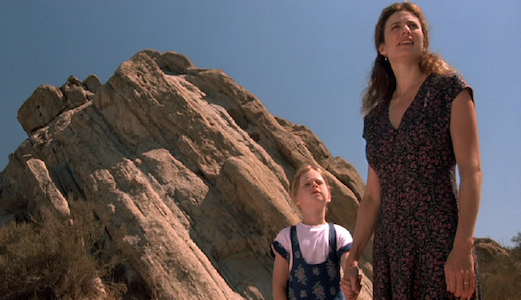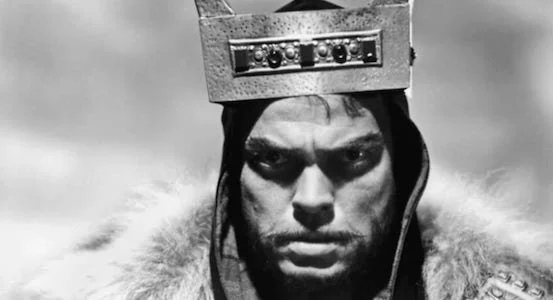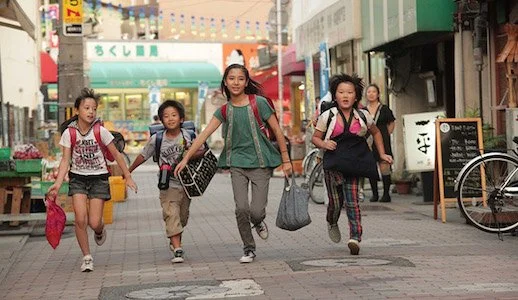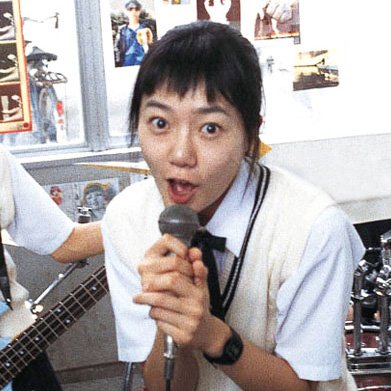The 21 Best Movies I Watched for the First Time in 2021
Look, it’s not that complicated: these are the 21 best non-2021 movies I watched in 2021; so this list of 21 movies doesn’t have any 2021 movies in it, only 21 movies I watched in 2021 that I liked that weren’t released in 2021. Get it?
Now, why am I posting this? That I can’t tell you. But here are some great movies:
21. The Vanishing (1988, directed by George Sluizer)
A “thriller” nothing like what I expected. Intellectual in a way lots of American thrillers grasp at without success. The antagonist here should be topping all those internet lists with names like “The 436 Best Movie Villains of All Time.” And, without spoiling anything, let’s just say this movie also gets the “thrill” part right, and then some.
20. Cargo 200 (2007, directed by Aleksey Balabanov)
Avoid unless you have a high tolerance for depictions of misery, violence, sexual assault and pernicious nihilism; though here it’s all at the service of an allegory about post-Cold War Russia, the reality of which is ultimately a lot more depressing than this or any movie could be. Will make you question if any subject is too inappropriate for a black comedy to plumb for (horrified) laughs.
19. Miss Granny (2014, directed by Dong-hyuk Hwang)
If you do watch Cargo 200 and you want to lighten up, this is the movie for you. Genuinely hilarious and very sweet Korean comedy from the director of Squid Game. Story is about a neglected grandmother who magically transforms into a younger woman and learns/teaches a variety of lessons. Unlike American family comedies, this one is pointedly unsentimental about motherhood and family; it’s clear-eyed about being young and old and the blind spots that come with both phases of life. Also, it’s full of a ton of great jokes!
Eun-Kyung Shim as the titular Miss Granny
18. Hill of Freedom (2014, directed by Sang-Soo Hong)
One of the most structurally unique movies by a director whose movies are famous for their creative structures, this minimal love story is told completely out of order. Follows a Japanese man (Ryo Kase) who tries to reconnect with a lover in Korea. The film is mostly in broken English, which adds a lot of charm. Yuh-jung Yoon, the Oscar winning actress from Minari, brings her distinctive charisma to a small role, as she does in the next movie on this list.
17. Lucky Chan-Sil (2019, directed by Cho-hee Kim)
Funny and beautiful drama about a fortysomething woman (Mal-Geum Kang) who’s trying to figure out her life. Since she’s a film producer, her struggles are tangled up with a love-hate relationship with cinema that I found very relatable. Yuh-jung Yoon plays the inscrutable neighbour whom Kang teaches how to read, and she provides some of the film’s most beautiful moments. Overall this is a very pleasant, involving movie, which doesn’t cease to be pleasant while staying pretty honest about the disappointments of life.
16. Les créatures (1966, directed by Agnès Varda)
Genius! From around 1962 to around 1985 I think it’s possible Agnès Varda was subtly and secretly the greatest filmmaker alive. This movie is about an author (Michel Piccoli) staying in a small seaside town whose inhabitants are characters in the book he’s writing… sort of. You know how a lot of movies use a story-within-a-story to do a metaphor with the writer as God and the characters as his creations, etc, and it’s always kind of lame? Well, this is the best version of that kind of movie, probably because it doesn’t take itself very seriously.
15. Track 29 (1988, directed by Nicolas Roeg)
People will often say about this or that provocative movie that it is “insane,” and what they usually mean is that the movie is transgressive in an ironic way. This movie, on the other hand, is truly insane, in that an unhinged mental state is the fabric joining all of its strange, disparate elements. About a Southern housewife (Theresa Russell) terrorized by a young man (Gary Oldman) who is either her son or the hallucinated figure of the man who raped her when she was a child - or both of these, simultaneously. Meanwhile her husband (Christopher Lloyd) is a doctor whose bizarre obsession with model trains takes on obscure political dimensions. Ultimately this examines states of arrested development and makes a case that these states are a fundamental part of the American identity – a lofty ambition that the movie lives up to, if you ask me.
Gary Oldman and Theresa Russell in Track 29
14. The Silence (1998, directed by Mohsen Makhmalbaf)
Quite the experience! This 76-minute movie is about a blind Tajik boy with a hypersensitive ear whose daily commutes to his job at a music store are interrupted by his inability to resist exploring the sounds that surround him. Like a lot of movies, this is about learning not to take for granted the beauty of the world, but unlike a lot of movies, this theme is rendered via a poetic style that’s purely and powerfully cinematic.
13. The Story of Qiu Ju (1992, directed by Yimou Zhang)
The impossibly glamorous Gong Li convincingly plays a rustic woman who petitions the Chinese bureaucracy for an apology after her husband is insulted by a local official. What sounds like a sentimental story about the triumph of the human spirit is actually a human comedy in which both the country and city folk are gently satirized. Li’s performance is what makes the movie: she’s charming in a rough way, immediately involving and relatable, yet she maintains a slight, critical distance from the character that amounts to an exceptional, multi-layered performance.
12. The Rapture (1991, directed by Michael Tolkin)
A strange 90s drama that imagines a world in which the Bible and particularly its end-times prophecies are literally true; the point being to ask what a world like that would look like for the individual. The individual here is played by Mimi Rogers in a wrenching performance and the answer to the aforementioned question is: not great. Highly provocative to anyone with an Abrahamic upbringing, but equally valuable for the ominous, creepy tone it maintains throughout.
Mimi Rogers waiting for God in The Rapture
11. Fish Story (2009, directed by Yoshihiro Nakamura)
Having seen so many movies, it’s always nice – and increasingly rare – to come across one that feels utterly unique. This is a Japanese comedy about a 1970s punk band, an apocalyptic meteor, a deadly waiter, and a lot of other things, all cohering in a parable about coincidence and fate. That parable is diverting but not meant, I don’t think, to be taken very seriously. The title refers to a story composed of humourous and colourful nonsense, and I think that gets at the film’s real parable: the power of art, even if meaningless, to provide the meaning that we invest in it. Too deep? Don’t worry, the movie doesn’t come off nearly as ponderous as I just did. Also, it has one of the most entertaining fight scenes I’ve seen in a while.
10. Candyman (1992, directed by Bernard Rose)
I’d heard this movie is better than the average 90s slasher flick; what I did not hear was that it is an incredible masterpiece. Seeing that Philip Glass composed the music was the first clue to the film’s actual quality. Tony Todd, as the Candyman, is not the somnambulant Michael Myers-ripoff you’d expect; rather, he’s haunting, hypnotic, kind of romantic. This is a horror movie about gentrification and white privilege that could have been made in 2021 – in fact, it was made in 2021, again, and about 50-to-100 times shittier. But the good thing about this era of horrible remakes is that it provides inspiration to catch up on older movies I’d missed out on (I also preferred Lynch’s Dune to the latest one).
9. Preparations to Be Together for an Unknown Period of Time (2020, directed by Lili Horvát)
This is a mystery but not a thriller, a unique type of film that I’d like to see more often. About a neurologist (Natasa Stork, brilliant) who moves continents to be with a man who doesn’t recognize her when she arrives. The mystery at the heart of the story is how much of what we take for granted on a daily basis is actually just occurring inside our heads. To say more would ruin this very intriguing movie.
8. To the Ends of the Earth (2019, directed by Kiyoshi Kurosawa)
My favourite movie about a Japanese TV crew shooting a reality show in Uzbekistan. What’s yours? Leave your answers in the comments.
7. Peppermint Candy (1999, directed by Chang-dong Lee)
A narrative that moves backwards, beginning with a man (Kyung-gu Sol) committing suicide, then showing in reverse-order scenes from his life that paint a picture of both the man’s tragic journey and a few decades of South Korean history. This is that special kind of movie where every moment feels genuine and spontaneous and yet it’s all part of an intricately constructed narrative where every detail fits together like a freshly cut jigsaw puzzle. I haven’t seen Betrayal, but of the two backwards-moving films I have seen, this is the best.
6. Macbeth (1948, directed by Orson Welles)
Has the reputation of being stagey, and while it does take place mostly on one set, the choreography of the camera is so integral with the action that to me it’s nothing if not cinematic. The production is an order of magnitude less polished than Polanski’s Macbeth, yet I enjoyed this one a lot more; the balance between the director’s vision and Shakespeare’s words is just right. Jeanette Nolan is the best cinematic Lady Macbeth (at least, in the traditional mode in which she’s usually depicted; McDormand’s version is a bit different). After Chimes at Midnight, this is my preferred Welles Shakespeare film, and one of my favourite Welles and Shakespeare films, period.
Orson Welles as Macbeth
5. Cluny Brown (1946, directed by Ernst Lubitsch)
I have a theory that this and the next film are funny no matter how old you are or where you were born. This might just reveal my biases, but I’m not sure about that; the jokes are just so immaculately constructed and paid off that it’s hard to imagine the poor soul who wouldn’t find them funny. Charles Boyer and Jennifer Jones play a couple of oddballs who scandalize a stuffy English town, and the two of them are so improbably charming you have to start using words like ‘iridescent’ to describe them. They’re so good the movie’s only flaw is not being more about them and less about the peripheral characters.
4. Bluebeard’s Eighth Wife (1938, directed by Ernst Lubitsch)
This movie has a slight edge on Cluny Brown for being an endlessly hilarious movie with a perfect story rather than just an endlessly hilarious movie with a near-perfect story. Gary Cooper is a serial divorcé and Claudette Colbert is the woman determined to fix him (by driving him crazy, this being a 30s screwball comedy). David Niven is funny in a small role, and Edward Everett Horton is perhaps the funniest he ever was as Colbert’s father, which lovers of Horton know is saying a lot.
3. I Wish (2011, directed by Hirokazu Koreeda)
This is the part of the list where we move from great movies to incredible works of humanity that transcend any medium and provide some relief from the pain of existence. About two brothers, children of divorced parents, one brother living with the mother and the other with the father. They hear an urban legend about a train stop that grants wishes (it’s a long story) and hatch a plan to wish their family back together. They’re joined by some friends, each with their own wishes. These are some of the most charming movie kids you’ll come across, but they’ll break your heart, and then they’ll sew your heart back together and leave you with a stronger, wiser heart than you had before. That isn’t hyperbole, by the way. This movie will literally do that. Don’t believe me? Watch it.
I Wish
2. Happy Hour (2015, directed by Ryûsuke Hamaguchi)
Has an unfair advantage over the other films on this list because at 5½ hours long it’s the length of about 3 or 4 movies. Despite that intimidating fact, this movie is best watched in one sitting, hopefully with the person you love, which was my good fortune. It’s about nothing more than a few months in the lives of four thirtysomething women, two married, one divorced, and one trying to get divorced. This is the kind of movie that’s hard to sell on the page because it will sound like any other drama. Yes, the women face romantic difficulties and brush up against societal sexism; but have you ever been drawn into a movie so completely that for its duration you felt like you were living someone else’s life? Like for real? Like you really felt that? Because I felt something like that watching this movie, while never forgetting Hamaguchi’s easygoing expertise with the camera, and his ability to construct scenes of incredible tension. I’d be interested in learning if there was some genuinely meditative effect of extra-long movies like this; watching it, I did feel like I was getting the most out of every passing moment in a way that is, well, certainly not a common experience for me.
1. Linda Linda Linda (2005, directed by Nobuhiro Yamashita)
This is a humble Japanese comedy about an all-girl teenaged rock band prepping for a gig at their high school’s music festival. Sounds like a story with pretty low stakes, right? It is, but when you think about how most of our lives are comprised of events of pretty low stakes, the stakes start to seem a little higher, especially when the movie is so effective at placing you squarely in the mindset of the girls, for whom the stakes are anything but low. In other words, this is a movie that is uniquely effective at being about exactly what it’s about. The cinematic tension Yamashita creates leading up to the big show is what movies are made for.
This is also a fish-out-of-water story, since one of the girls (Doona Bae) is an exchange student from Korea, and a lot of sweet humour is extracted from the language barrier between her and the other girls. Doona Bae is one of the great screen comedians of the last twenty years, she has a face like a Pixar character and can sell a joke by doing next to nothing. She’s one of those screen personas that registers as somewhat magical, like she’s a spiritual sister of Harpo Marx.
Oh, and the title comes from the song the girls perform, a catchy song by the Japanese punk group The Blue Hearts. Check it out.
Doona Bae in Linda Linda Linda






